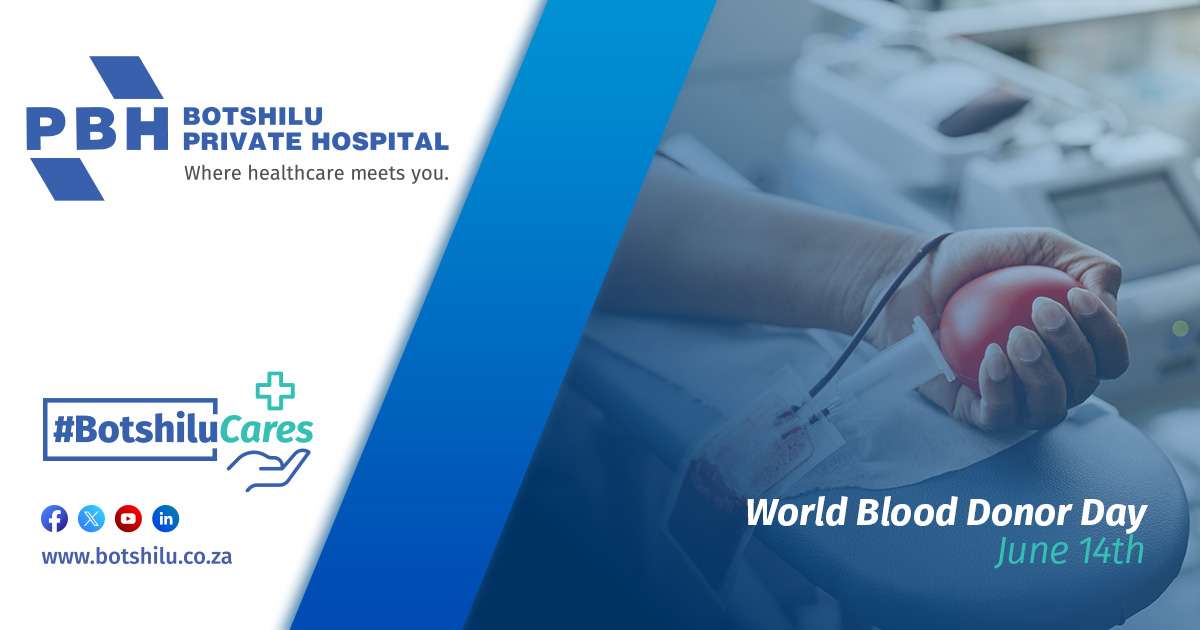
Giving blood saves lives. But it’s always in high demand.
World Blood Donor Day is observed on 14th June every year. This international event aims to raise awareness about the importance of blood donation and express gratitude to voluntary, unpaid blood donors worldwide. The day also serves as an opportunity to promote the need for safe blood and blood products for transfusion and recognise the critical role that blood donors play in saving lives and improving health outcomes. This day marks the invaluable asset of having affordable, timely supplies of clean, safe blood for universal health.
Blood types
You will find out your blood type after your first blood donation. There are some blood types that are rarer than others. The list below shows the percentage of donors with each blood type:
O positive: 35%
O negative: 13%
A positive: 30%
A negative: 8%
B positive: 8%
B negative: 2%
AB positive: 2%
AB negative: 1%
(Data accurate at December 2018. Percentage figures have been rounded to the nearest whole number)
You also have antibodies in the clear part of blood called plasma. Antibodies are important in transfusion because they are the body’s natural defence system. They recognise any ‘foreign’ antigens and tell your immune system to destroy them.
That’s why giving someone blood from the wrong ABO group can be life-threatening.
How blood is used
Blood or the components of blood are used to treat patients with medical conditions, such as anaemia, cancer and blood disorders, as well as those having surgery. Components include including red blood cells, platelets and plasma. Each of these can be used to treat many different conditions.
Blood is usually separated into its individual components or parts, so a patient can be given the particular component they need. This makes the most of every blood donation, as the components in one unit of blood (or one donation) can be used to treat different patients.
Blood transfusions
Donated blood or components are given to a patient in a blood transfusion. Blood donations is given via a line into a vein to treat medical conditions including anaemia, cancer and blood disorders, and also used in surgery and emergencies including childbirth.
Whilst the demand for blood from hospitals has fallen due to increased efficiency, new donors are always needed to make sure there is enough blood to treat those who need it.
Blood can be vital for people with medical conditions or who are having surgery. But blood transfusions can also improve the quality of life for people whose illness has no cure.
Blood not used for transfusion
Sometimes, blood may not be suitable for transfusion. This blood can still benefit patients in areas like the development of treatments and therapies. Blood can be very useful for research and training, and to help develop tests.
Who can donate blood
To donate blood you will need to:
- be generally fit and well
- be aged between 17 and 65
- weigh between 50kg and 158kg
- have suitable veins (the team will check these before you donate)
- meet all donor eligibility criteria (the team will check this with you before you donate)
Who can’t donate blood
You can’t donate blood if you:
- have had most types of cancer
- have some heart conditions
- have received blood, platelets, plasma or any other blood products after 1 January 1980
- have tested positive for HIV
- have had an organ transplant
- are a hepatitis B carrier
- are a hepatitis C carrier
- have injected non-prescribed drugs including body-building and injectable tanning agents. You may be able to give if a doctor prescribed the drugs






